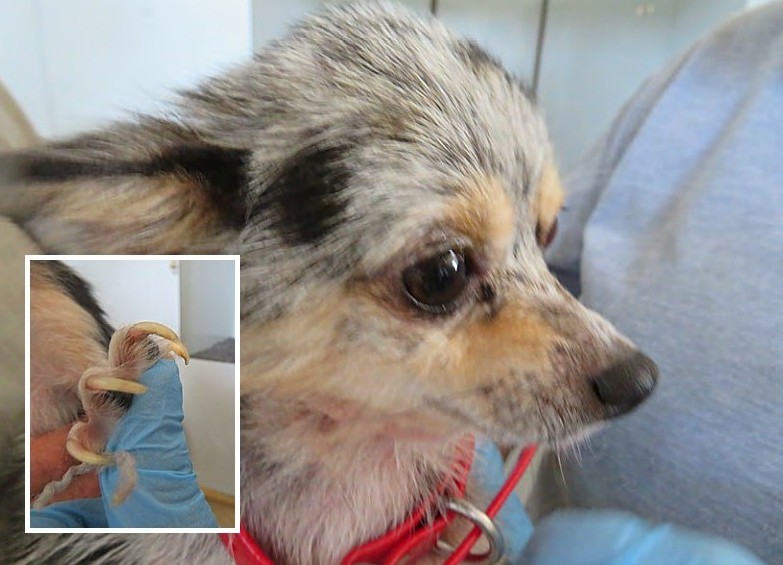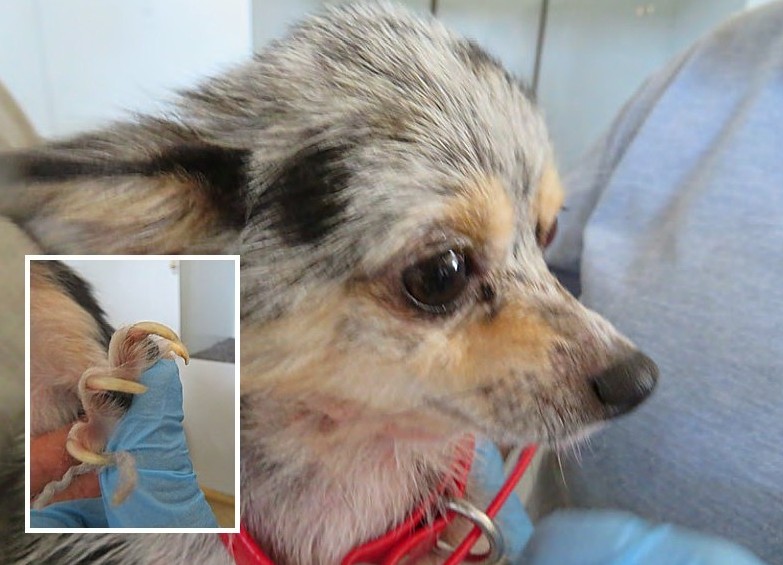State inspections at Iowa's dog-breeding facilities are supposed to take place on a 'surprise' basis, but some of Iowa's biggest offenders have their inspections scheduled at their own convenience. Although the federal U.S. Department of Agriculture handles the enforcement of the federal Animal Welfare Act, the Iowa Department of Agriculture and Land Stewardship also plays a role. Under Iowa law, all USDA-licensed commercial dog breeding facilities operating in Iowa are also required to have a permit or license from the state ag department. The state doesn't conduct routine inspections at these USDA-licensed facilities. The state ag department has published information saying if it receives a complaint about such a facility, it will relay the complaint to the USDA and may 'assist the USDA with an inspection' or take some unspecified 'additional steps.'
Iowa Department of Agriculture states in a guide published for breeders that its inspections of these facilities are 'unannounced.' But state records show that even when dealing with breeders with a past history of serious, recurring violations, state inspectors are not only notifying breeders of the precise time and date of their upcoming visits, they are consulting with the breeders as to the times most convenient for them.
For example, Kurt and Hollie Pille of St. Anthony, Iowa, run a breeding operation that has been cited for numerous issues and been listed among the 100 worst puppy mills in the nation.
In January of this year, state inspectors visited the Pilles' facilities and reported that some dogs had no protection from the cold, and most had only frozen water in their kennels.
Other issues found during the January inspection included a 'lack of roofing' in an outbuilding that put the dogs at risk, dirty conditions and dogs exposed to unfinished walls and
exposed insulation that they were at risk of ingesting.
Iowa Department of Agriculture inspector Stephanie Black wrote in one January report that 'basset hounds do not appear to have adequate cover from weather and wind. It is the responsibility of the licensee to ensure that all animals are protected against freezing temperatures and that bedding is not allowed to blow away.'
Later in January, Black returned to the facility and wrote that 'the roof of the large out-building remains at issue,' but added the dogs inside the building were 'protected from falling debris with sufficient structural change.' Black's report suggested there were too many animals for the Hollie Pille to care for, stating: 'The population is currently 34 canines in the care of one adult. Reduction conversation will continue.'
Inspector general says federal oversight is lacking
Earlier this year, the Office of Inspector General at the U.S. Department of Agriculture reviewed the agency's enforcement of the federal Animal Welfare Act.
The inspector general concluded that the USDA's Animal and Plant Health Inspection Service 'did not consistently address complaints it received or adequately document the results of its follow-up.'
The inspector general noted that the inspection service did not even have a 'process for responding to complaints or for recording the results of the agency's actions. As a result, some dog breeder facilities may be conducting regulated activity without a USDA license or oversight.'
As of January 2020, there were, there were 2,422 USDA-licensed dog breeders in America.
The five states with the highest number of USDA-licensed dog breeders are: Missouri: 764 Indiana: 331 Ohio: 310 Iowa: 217 Oklahoma: 155
In early February, Black was traveling to the facility to conduct another inspection. In her notes on that visit, Black indicated the visit was a pre-arranged appointment. She wrote: 'Scheduled for 10:30. During drive, appointment was cancelled due to personal, family emergency. Will attempt to re-schedule for the week of February 8, 2021.'
Black then emailed Hollie Pille and stated, 'Thank you for having Kurt contact me to reschedule today's appointment. I currently have Monday or Wednesday of next week available, if 10:30 works for you. Just let me know which day.'
Hollie wrote back: 'Let's do Wednesday at 10:30, I'll see you then.'
Black responded: 'Hollie: My Wednesday is already booked. My earliest opportunity to your area is Friday the 12th or Tuesday the 16th of February. Do either of those mornings work for you at 10:30?' According to Black's notes, Hollie never responded.
In February, Black drove to the facility. In her notes, she wrote: 'On this day Thursday, February 25, 2021, 10:54, I'm attempting an unannounced inspection. The residence appears occupied, with usual autos on site. The front door is not accessible by foot due to loose canines. I attempted a text message and a phone call. Ms. Pille appears to be avoiding regulation. I sat in vehicle in driveway twenty minutes.'
In March, Black returned and found the facility to be in complete compliance. She wrote that while the outbuilding roof was still in disrepair, the four dogs housed there were 'protected by a cover of fencing sections.'
She also noted that walls that once were lined with exposed insulation were now covered in plastic sheeting, and that she had a 'realistic discussion' with the owner about 'heated water bowls or buckets for winter 2021.'
State agency: Some inspections must be announced
Iowa Department of Agriculture spokeswoman Keely Compass said the agency attempts to make all of its inspections unannounced, but adds that this isn't always possible.
'If we go there a certain amount of times and we're unable to reach someone, then we may have to schedule a time,' she said.
Animal advocates say that process makes no sense: All a dog breeder must do to avoid a surprise inspection by the state is violate the federal regulation that guarantees inspectors access to any licensed facility during regular business hours.
Since that violation rarely results in a penalty, a breeder risks nothing by simply refusing to come to the door or answer the phone.
'We've often heard that breeders who are not ready for inspection just will not answer the door and take a minor ?unavailable' violation, as opposed to getting more severe violations,' said Mindi Callison of Bailing Out Benji, an Iowa-based animal-advocacy group.
'This does a huge disservice to the animals in their care because the inspectors are not seeing how these animals live year-round. We saw this in the Daniel Gingerich puppy mill case where he denied entrance to an inspector and said, ?Just cite me for refusing the inspection.'
Gingerich is a Wayne County breeder now facing state and federal sanctions for dozens of Animal Welfare Act violations. Federal officials say that this summer, Gingerich repeatedly refused to let them inside a barn on his property in Seymour, telling inspectors to just write him up for denying them access. Eventually, the inspectors got inside and found 27 dogs Gingerich had allegedly hidden there in 'filthy' conditions, including some dogs that were dead, emaciated or left without water.
Callison said while it's important for inspectors to 'get eyes on the facility, even by means of scheduling an appointment,' there must be consequences for denying access to the inspectors. Nebraska, she said, imposes a $125 reinspection fee on breeders in such cases, and also has them pay costs based on the inspector's mileage.
Under the Trump administration, the USDA moved away from surprise federal inspections. In 2018, the agency sent licensees a letter announcing a pilot project that would make use of scheduled, announced inspections to determine whether they would improve 'the efficiency of our inspection program and improve the humane treatment of animals.'
That proposal died after animal-rights groups, including the American Society for the Prevention of Cruelty to Animals, protested. At the time, the organization said planned, announced
inspections 'give puppy mills plenty of time to clean up filthy conditions and temporarily conceal suffering animals.'
Asked how often Iowa's dog breeders are informed in advance of the precise time and date of a state inspection, Compass said she would follow up on that question with the department's 'animal team' and report back. The agency has yet to provide that information.
The Iowa Capital Dispatch recently requested access to all of the emails Black exchanged with the Pilles. An Iowa Department of Agriculture representative said the fee for access would be $25 an hour to retrieve the emails, plus 25 cents per page. The Capital Dispatch declined the offer.




